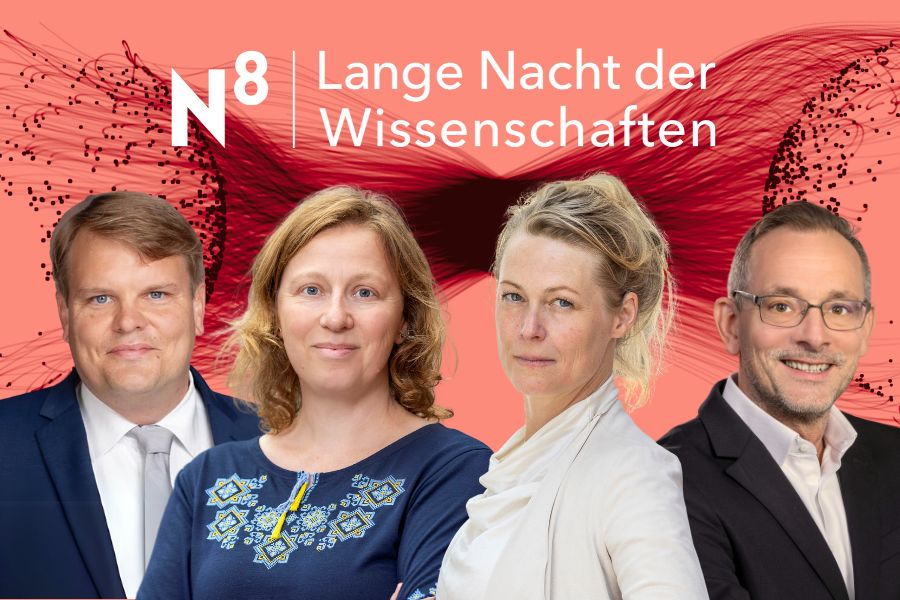Viadrina experts at the Lange Nacht der Wissenschaften Berlin
German commitment to peace in current conflicts, Ukrainian protest, digital entrepreneurship and computer games as a business model - these are the topics of Viadrina experts at the Lange Nacht der Wissenschaften in Berlin, where the Viadrina will be participating for the first time. The science festival will take place on Saturday, 28 June, from 17:00. Viadrina researchers can be seen between 5.00 pm and midnight in the Main Building of the Humboldt-Universität, Unter den Linden 6, room 1072.
If you want to join, you can book tickets at: www.langenachtderwissenschaften.de or purchase them at the box office at the Humboldt-Universität.
Admission price for all tickets €5.

The Viadrina programme at the Lange Nacht der Wissenschaften Berlin:
17.00 to 18.00 and 19.00 to 20.00
The Fortnite Trap: How a free-to-play game made billions
Prof. Dr Georg Stadtmann
Fortnite is one of the most successful online games of recent years and is often associated with addictive behaviour. The game follows the battle royale principle, in which 100 players compete against each other until only one remains. Despite being available for free, Fortnite generates enormous revenue through in-game purchases, which players can use to buy outfits or equipment for their characters or unlock rewards, for example. The lecture by Viadrina economist Prof. Dr Georg Stadtmann analyses the business model and shows why it is ideal for Epic Games to offer the game for free in order to maximise market share (from 8 years).
18.00 to 19.00
Become your own boss - Digital Entrepreneurship at the Viadrina
Prof. Dr Lauri Wessel
Lego is not just for children. Prof Dr Lauri Wessel uses a Lego Serious Play model to illustrate how teaching and research work at the European New School of Digital Studies (ENS). The Professor of Information Management and Digital Transformation will talk about how the ENS produces successful digital entrepreneurs (aged 10 and over).
20.00 to 21.00
Conflicting goals and dilemmas in German peace engagement
Dr Anne Holper
What dilemmas does the German commitment to peace face in current crises and conflicts, for example in Ukraine and the Middle East, but also in other conflict contexts? To what extent do these dilemmas inhibit the impact of peace activities and how can they be brought under control? How can science and politics work together to achieve this? What questions need to be clarified within German society so that Germany can better cope with these foreign policy challenges? The interactive lecture by Dr Anne Holper explores these questions in discussion with the audience (no age limit).
21.00 to 22.00
From Granite to Yellow Ribbon: A Brief History of Protest in Ukraine
Dr Susann Worschech
While preparations were being made for reunification in both Germanys on 2 October 1990, 100,000 people took to the city's central square in Kyiv to demonstrate for independence, freedom and democracy in Ukraine. This first of several major pro-democracy revolutions was formative for the following decades: the ideas, symbols and tactics of the "Granite Revolution" permeate Ukrainian history and can be found in the resistance against Russian occupation and terror. In her lecture, Dr Susann Worschech, academic coordinator of the Competence Network Interdisciplinary Ukrainian Studies - Berlin (KIU), will explain the background to the Ukrainian desire for freedom (from 14 years).
Further information: www.langenachtderwissenschaften.de
and on social media:
www.facebook.com/LangeNachtDerWissenschaftenBerlin
www.twitter.com/lndwberlin
www.instagram.com/lndwberlin
Translated by DeepL and edited
Back to the news portal
Share article: